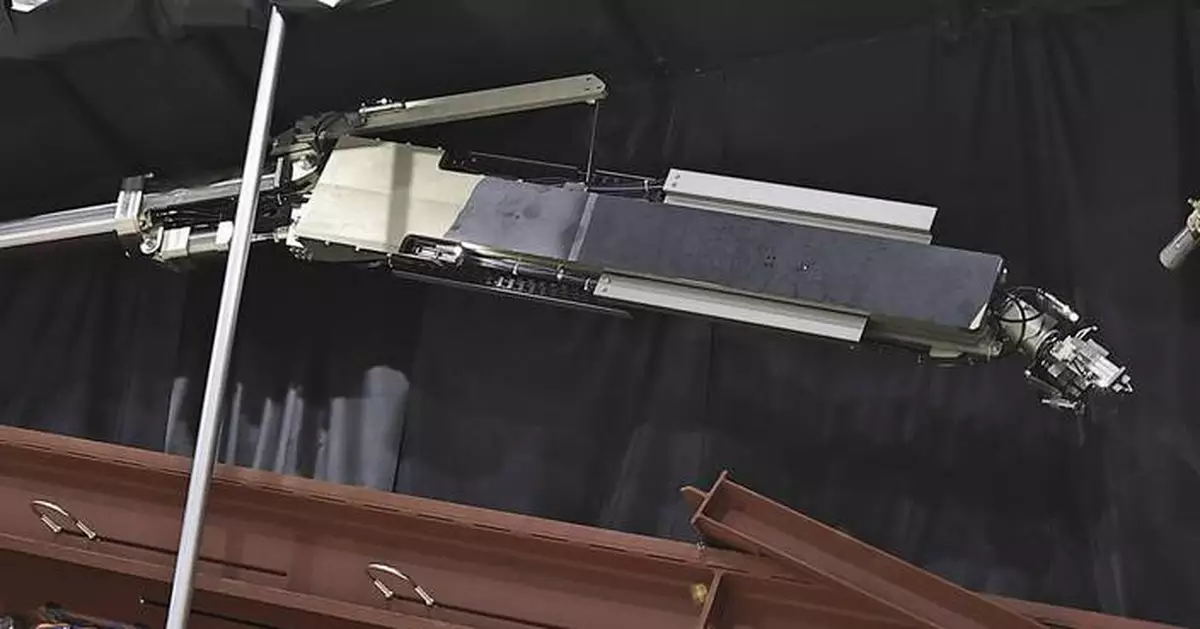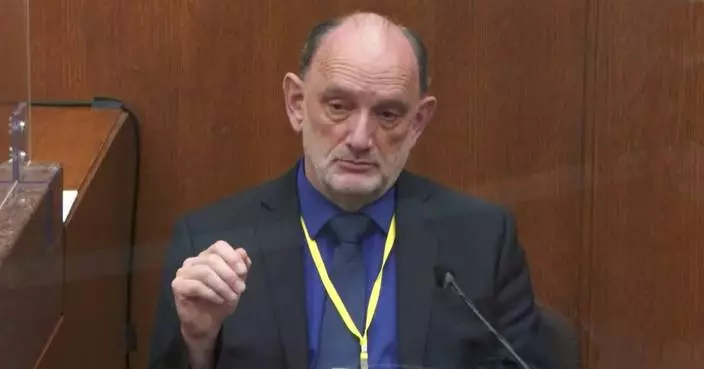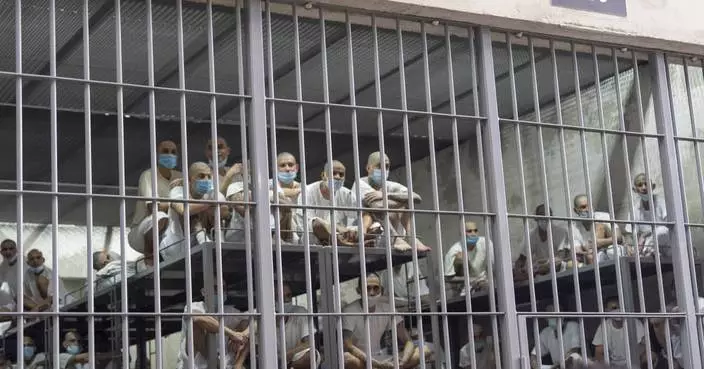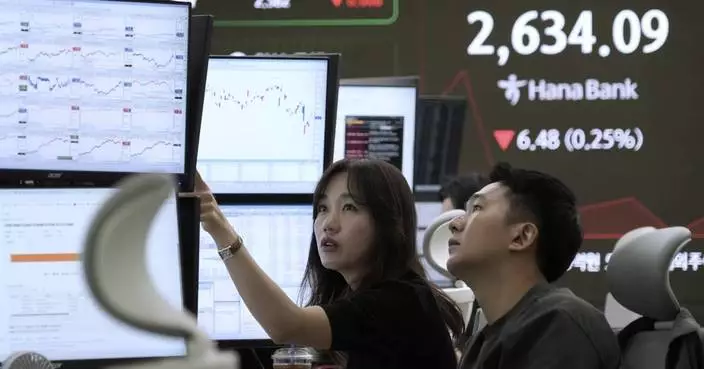TOKYO (AP) — A robot that has spent months inside the ruins of a nuclear reactor at the tsunami-hit Fukushima Daiichi plant delivered a tiny sample of melted nuclear fuel on Thursday, in what plant officials said was a step toward beginning the cleanup of hundreds of tons of melted fuel debris.
The sample, the size of a grain of rice, was placed into a secure container, marking the end of the mission, according to Tokyo Electric Power Company Holdings, which manages the plant. It is being transported to a glove box for size and weight measurements before being sent to outside laboratories for detailed analyses over the coming months.
Plant chief Akira Ono has said it will provide key data to plan a decommissioning strategy, develop necessary technology and robots and learn how the accident had developed.
The first sample alone is not enough and additional small-scale sampling missions will be necessary in order to obtain more data, TEPCO spokesperson Kenichi Takahara told reporters Thursday. “It may take time, but we will steadily tackle decommissioning,” Takahara said.
Despite multiple probes in the years since the 2011 disaster that wrecked the. plant and forced thousands of nearby residents to leave their homes, much about the site's highly radioactive interior remains a mystery.
The sample, the first to be retrieved from inside a reactor, was significantly less radioactive than expected. Officials had been concerned that it might be too radioactive to be safely tested even with heavy protective gear, and set an upper limit for removal out of the reactor. The sample came in well under the limit.
That's led some to question whether the robot extracted the nuclear fuel it was looking for from an area in which previous probes have detected much higher levels of radioactive contamination, but TEPCO officials insist they believe the sample is melted fuel.
The extendable robot, nicknamed Telesco, first began its mission August with a plan for a two-week round trip, after previous missions had been delayed since 2021. But progress was suspended twice due to mishaps — the first involving an assembly error that took nearly three weeks to fix, and the second a camera failure.
On Oct. 30, it clipped a sample weighting less than 3 grams (.01 ounces) from the surface of a mound of melted fuel debris sitting on the bottom of the primary containment vessel of the Unit 2 reactor, TEPCO said.
Three days later, the robot returned to an enclosed container, as workers in full hazmat gear slowly pulled it out.
On Thursday, the gravel, whose radioactivity earlier this week recorded far below the upper limit set for its environmental and health safety, was placed into a safe container for removal out of the compartment.
The sample return marks the first time the melted fuel is retrieved out of the containment vessel.
Fukushima Daiichi lost its key cooling systems during a 2011 earthquake and tsunami, causing meltdowns in its three reactors. An estimated 880 tons of fatally radioactive melted fuel remains in them.
The government and TEPCO have set a 30-to-40-year target to finish the cleanup by 2051, which experts say is overly optimistic and should be updated. Some say it would take for a century or longer.
Chief Cabinet Secretary Yoshimasa Hayashi said there have been some delays but “there will be no impact on the entire decommissioning process.”
No specific plans for the full removal of the fuel debris or its final disposal have been decided.
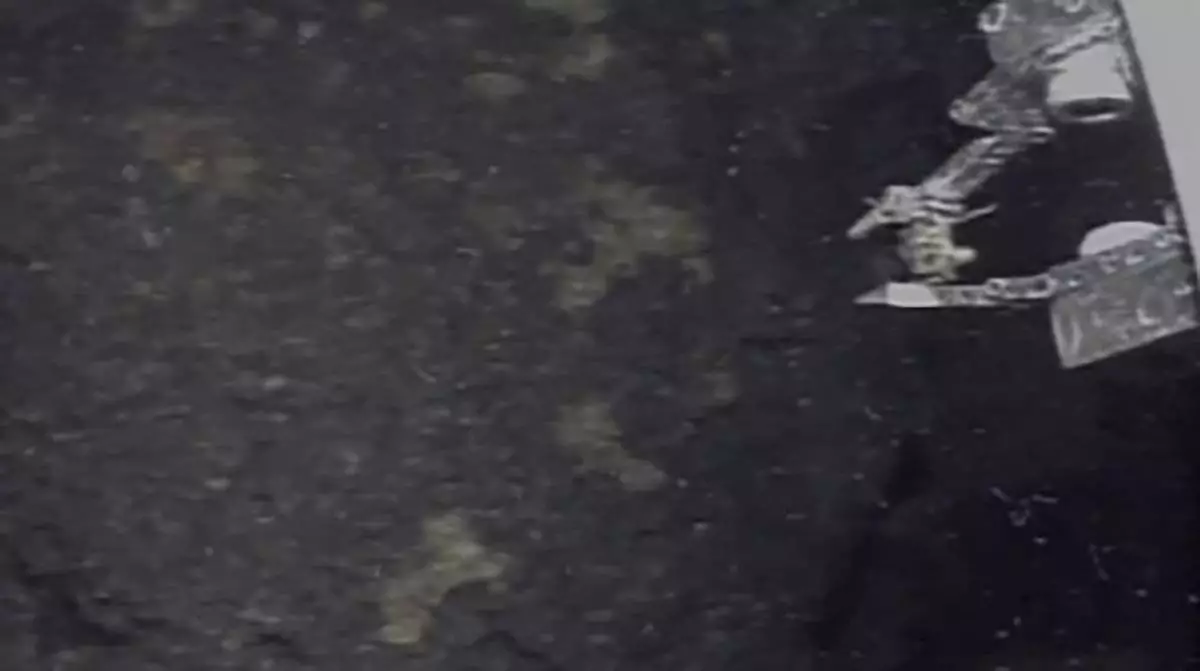
This photo released by Tokyo Electric Power Company Holdings (TEPCO), shows a robot, top right, clips a tiny gravel of what it believed to be melted fuel debris at the No. 2 reactor of the Fukushima Daiichi nuclear power plant in Okuma, Fukushima, northern Japan, on Oct. 30, 3024. (Tokyo Electric Power Company Holdings via AP)
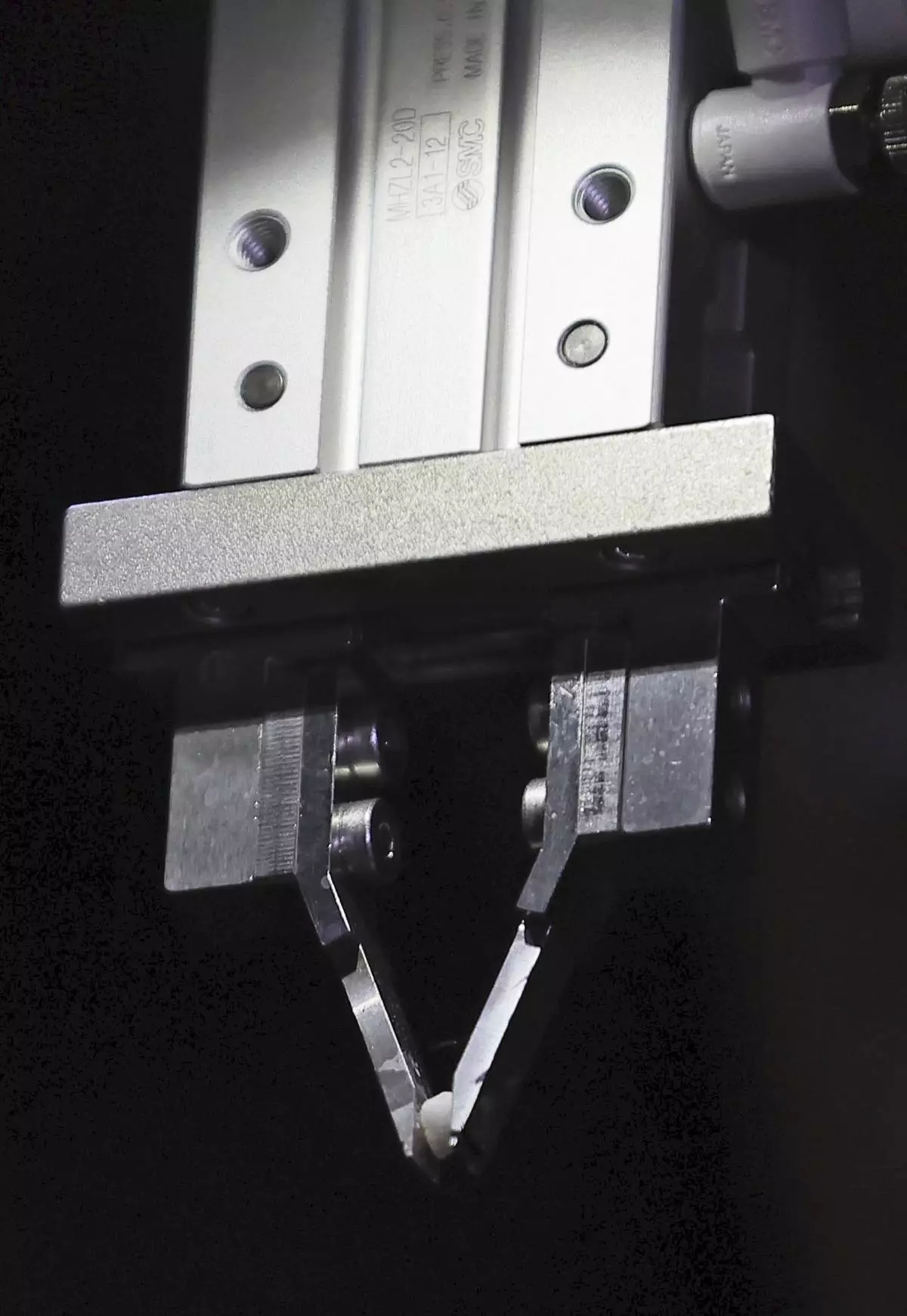
A device to remove debris from a reactor at the damaged Fukushima Nuclear power plant demonstrates to pinch a stone, as revealed in Kobe, western Japan, May 28, 2024. (Kyodo News via AP, File)
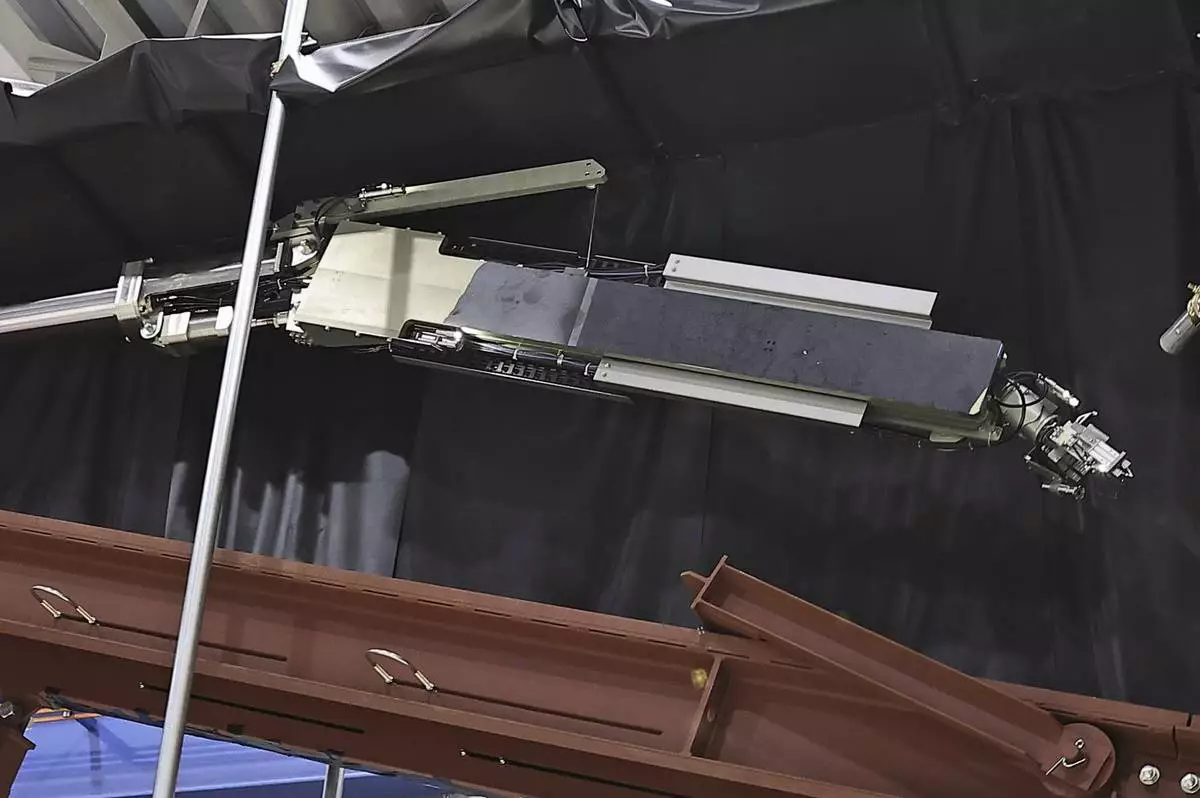
FILE - Tokyo Electric Power Company Holdings, also known as TEPCO, the operator of Japan's wrecked Fukushima Daiichi nuclear power plant, reveals a robot to be used to retrieve debris at the power plant in Kobe, western Japan, May 28, 2024. (Kyodo News via AP, File)
VINEYARD HAVEN, Mass. (AP) — Lewis Pugh has followed an unspoken rule during his career as one of the world’s most daring endurance swimmers: Don’t talk about sharks. But he plans to break that this week on a swim around Martha’s Vineyard, where “ Jaws” was filmed 50 years ago.
The British-South African was the first person to complete a long-distance swim in every ocean of the world — and has taken on extreme conditions everywhere from Mount Everest to the Arctic.
“On this swim, it’s very different: We’re just talking about sharks all the time,” joked Pugh, who will, as usual, wear no wetsuit for the 62-mile (100-kilometer) swim.
For his swim around Martha’s Vineyard in 47-degree (8-degree Celsius) water he will wear just trunks, a cap and goggles.
Pugh, 55, is undertaking the challenge because he wants to change public perception around the now at-risk animals — which he said were maligned by the blockbuster film as “villains, as cold-blooded killers.” He will urge for more protection for sharks.
“We need to protect life in our oceans — all our futures rely on it,” he said on Thursday before starting out from a beach in front of the Edgartown Harbor Lighthouse and swimming an initial 3.9 miles (6.2 kilometers) for nearly three hours. On Friday, he'll get in the water and swim again — and again, for an estimated 12 days, or however long it takes him to complete the swim. He'll spend the rest of his time on the Vineyard educating the public about sharks.
Later Thursday, he crawled out of the water, where curious seals bobbed in the waves, and onto a boat to warm up and refuel.
He began his endeavor just after the New England Aquarium confirmed the first white shark sighting of the season, earlier this week off the coast of Nantucket.
“It’s going to test me not only physically, but also mentally,” he said, while scoping out wind conditions by the starting line earlier this week. “I mean every single day I’m going to be speaking about sharks, sharks, sharks, sharks. Then, ultimately, I’ve got to get in the water afterwards and do the swim. I suppose you can imagine what I’ll be thinking about.”
Pugh said the swim will be among the most difficult he’s undertaken, which says a lot for someone who has swum near glaciers and volcanoes, and among hippos, crocodiles and polar bears. No one has ever swum around the island of Martha's Vineyard before.
But Pugh, who often swims to raise awareness for environmental causes — and has been named the United Nations Patron of the Oceans for several years — said no swim is without risk and that drastic measures are needed to get his message across: Around 274,000 sharks are killed globally each day — a rate of 100 million every year, according to the American Association for the Advancement of Science.
“It was a film about sharks attacking humans and for 50 years, we have been attacking sharks,” he said of “Jaws.” “It’s completely unsustainable. It’s madness. We need to respect them.”
He emphasizes that the swim is not something nonprofessionals should attempt. He’s accompanied by safety personnel in a boat and kayak and uses a “Shark Shield” device that deters sharks using an electric field without harming them.
Pugh remembers feeling fear as a 16-year-old watching “Jaws” for the first time. Over decades of study and research, awe and respect have replaced his fear, as he realized the role they play in maintaining Earth’s increasingly fragile ecosystems.
“I’m more terrified of a world without sharks, or without predators,” he said.
“Jaws” is credited for creating Hollywood’s blockbuster culture when it was released in summer 1975, becoming the highest grossing film up until that time and earning three Academy Awards. It would impact how many viewed the ocean for decades to come.
Both director Steven Spielberg and author Peter Benchley have expressed regret over the impact of the film on viewers’ perception of sharks. Both have since contributed to conservation efforts for animals, which have seen populations depleted due to factors like overfishing and climate change.
Discovery Channel and the National Geographic Channel each year release programming about sharks to educate the public about the predator.
Greg Skomal, marine fisheries biologist at Martha’s Vineyard Fisheries within the Massachusetts Division of Marine Fisheries, said many people tell him they still won't swim in the ocean because of the sheer terror caused by the film.
“I tend to hear the expression that, ‘I haven’t gone in the water since ‘Jaws’ came out,’” he said.
But Skomal, who published a book challenging the film's inaccuracies, said “Jaws” also inspired many people — including him — to study marine biology, leading to increased research, acceptance and respect for the creatures.
If “Jaws” were made today, he doesn't think it'd have the same effect. But in the 1970s, “it was just perfect in terms of generating this level of fear to a public that was largely uneducated about sharks, because we were uneducated. Scientists didn’t know a lot about sharks.”
Skomal said the biggest threat contributing to the decline of the shark population now is commercial fishing, which exploded in the late 1970s and is today driven by high demand for fins and meat used in food dishes, as well as the use of skin to make leather and oil and cartilage for cosmetics.
“I think we’ve really moved away from this feeling, or the old adage that, ‘The only good shark is a dead shark,’” he said. “We’re definitely morphing from fear to fascination, or perhaps a combination of both.”
See an AP photo gallery from around Martha's Vineyard and the start of Pugh's swim here.
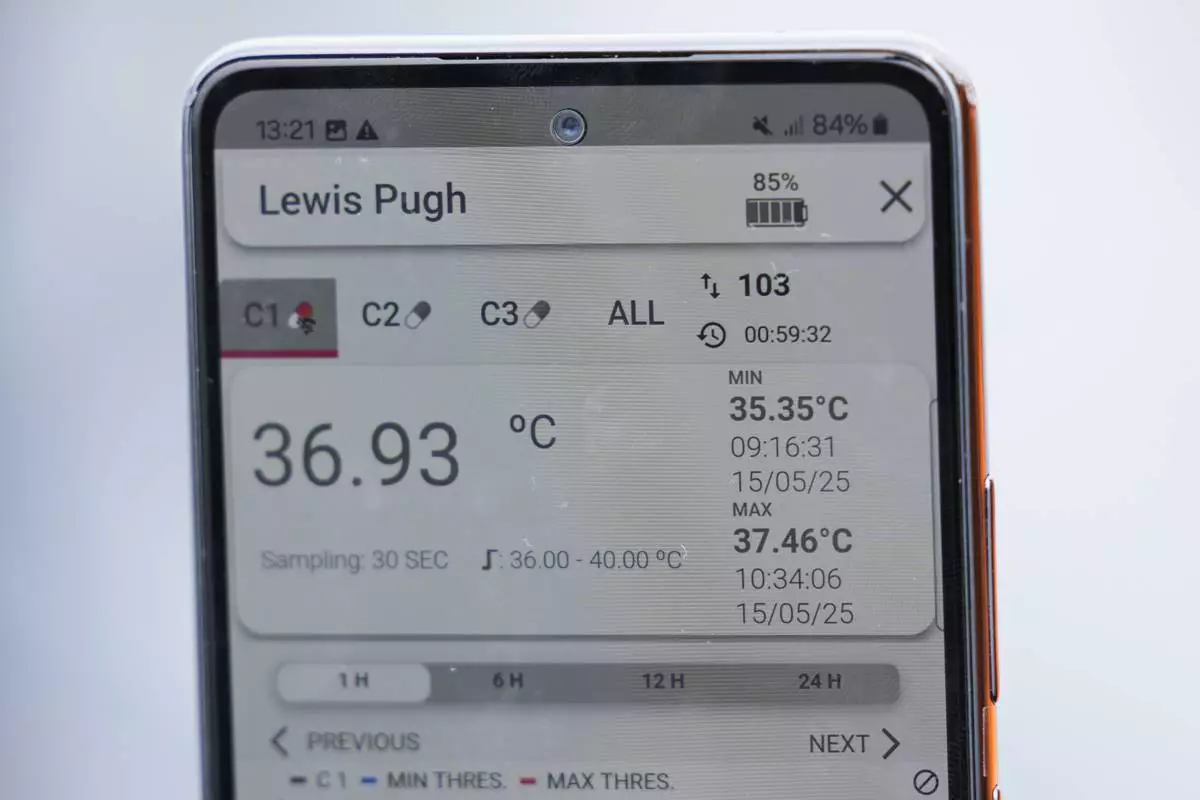
An app is used to monitor endurance swimmer Louis Pugh's temperature while he swims in 47 degree F water, Thursday, May 15, 2025, off Edgartown, Mass. (AP Photo/Robert F. Bukaty)

Endurance swimmer Louis Pugh swims off the coast pf Edgartown, Mass., Thursday, May 15, 2025. (AP Photo/Robert F. Bukaty)

Endurance swimmer Louis Pugh warms up on the ride back to shore after completing the first leg of his swim around Martha's Vineyard, Thursday, May 15, 2025, off Edgartown, Mass. (AP Photo/Robert F. Bukaty)

Endurance swimmer Louis Pugh swims near the Edgartown Harbor Light, Thursday, May 15, 2025, in Edgartown, Mass. (AP Photo/Robert F. Bukaty)

A woman views the sunset at Menemsha Beach, Wednesday, May 14, 2025, in Chilmark, Mass. (AP Photo/Robert F. Bukaty)

A man navigates the wake behind the Martha's Vineyard Ferry, Monday, May 12, 2025, in Vineyard Haven, Mass. (AP Photo/Charles Krupa)

A visitor arrives at a shop selling Jaws-related souvenirs, Wednesday, May 14, 2025, in Edgartown, Mass. (AP Photo/Robert F. Bukaty)

A shopper walks past items featuring the Jaws movie at Neptune's Sea Chest gift shop, Monday, May 12, 2025, in Vineyard Haven, Mass., on Martha's Vineyard Island. (AP Photo/Charles Krupa)

Endurance swimmer Lewis Pugh gestures to where he will begin his swim around Martha's Vineyard island, which is expected to take 12 days, near the Edgartown Lighthouse, Monday, May 12, 2025, in Edgartown, Mass. (AP Photo/Charles Krupa)

A family walks to the span of the American Legion Memorial Bridge, also known as the "Jaws Bridge", while spending the day fishing, Monday, May 12, 2025, in Edgartown, Mass., on Martha's Vineyard Island. (AP Photo/Charles Krupa)





